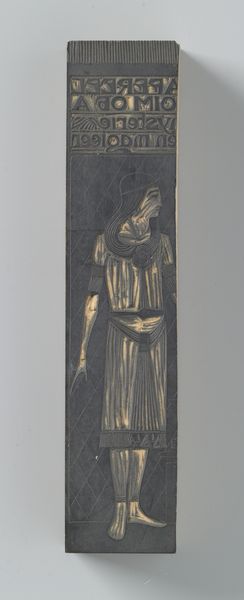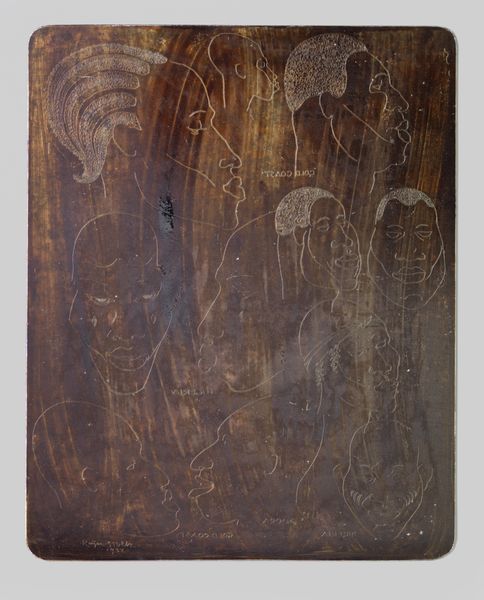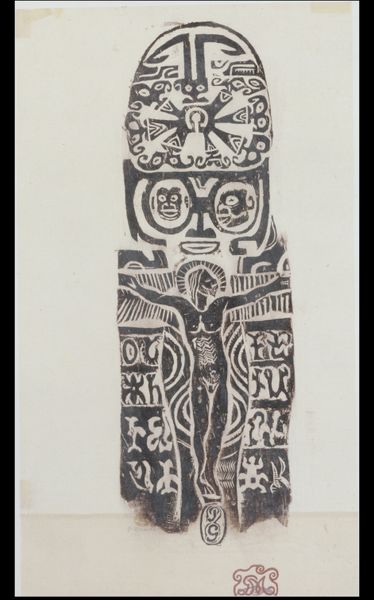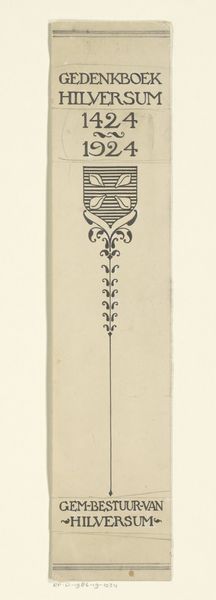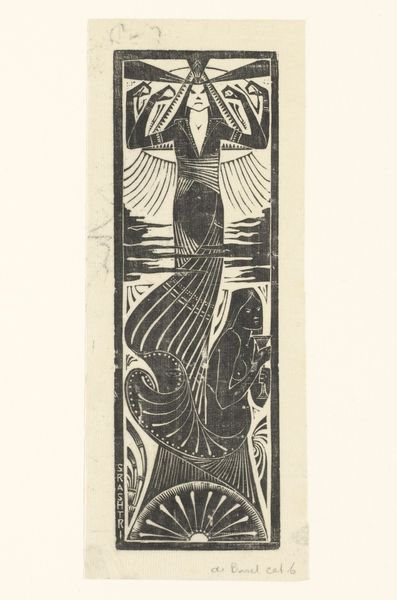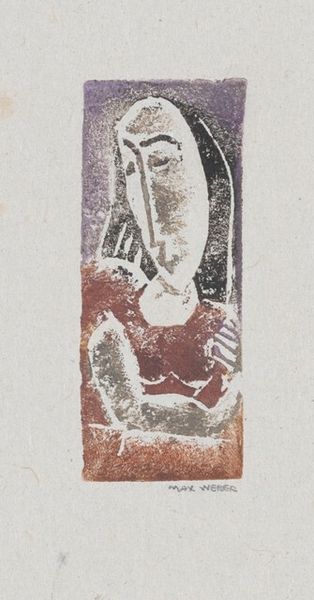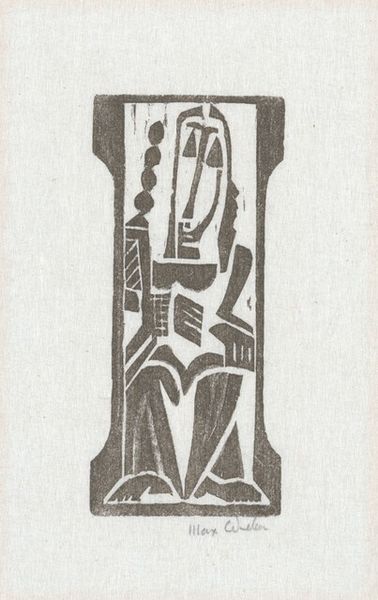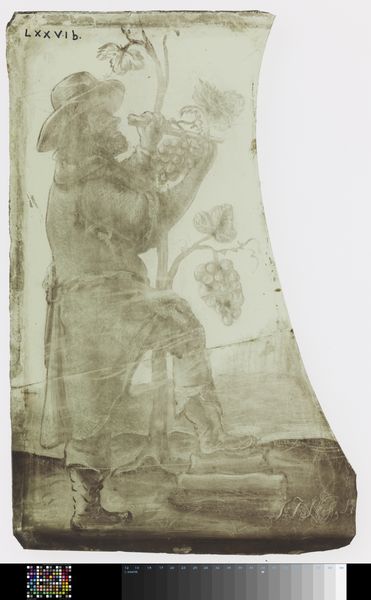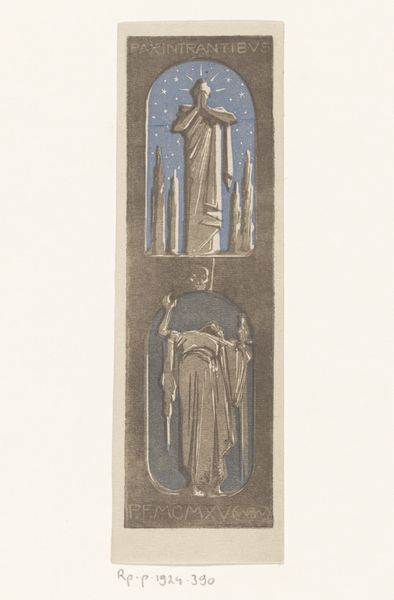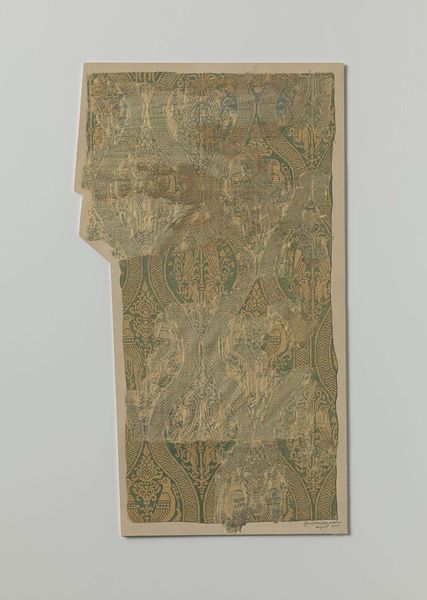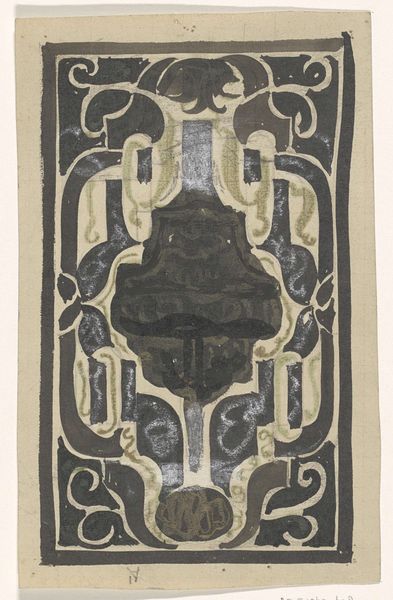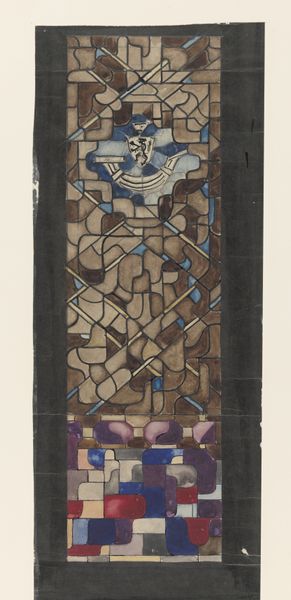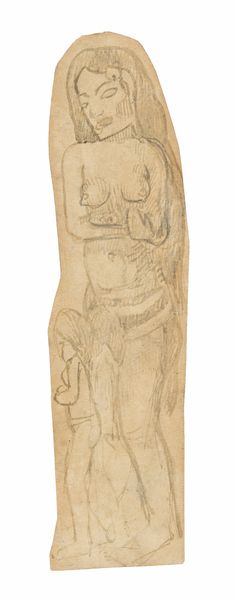
drawing, print, woodcut
#
portrait
#
drawing
# print
#
figuration
#
woodcut
#
line
#
symbolism
Dimensions: height 152 mm, width 450 mm
Copyright: Rijks Museum: Open Domain
Karel Petrus Cornelis de Bazel created this artwork, Hof der Genietingen, using an unknown medium. The image presents a figure beneath an imposing face. Consider the cultural and institutional context in which this artwork was made. De Bazel was a Dutch architect, graphic artist, and designer during a period of significant social change. The Netherlands at the turn of the century was experiencing the rise of modernism and a re-evaluation of traditional values. De Bazel, deeply involved in the Dutch design reform movement, sought to integrate art into everyday life and address social needs. His work often carries symbolism reflecting the spiritual and ethical concerns of his time. To fully understand the artwork we would need to look into the archive, including De Bazel’s personal writings, the manifestos of design reform movements, and the broader intellectual debates that shaped his artistic vision. This helps us understand the meaning of art as something that is contingent on social and institutional context.
Comments
No comments
Be the first to comment and join the conversation on the ultimate creative platform.
